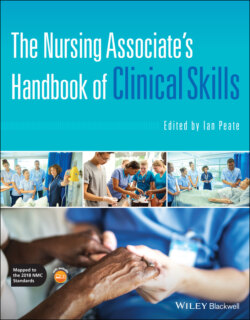Читать книгу The Nursing Associate's Handbook of Clinical Skills - Группа авторов - Страница 234
NHS Complaints
ОглавлениеA complaint or concern is defined by NHS England (2017b) as an expression of dissatisfaction about an act, omission or decision of NHS England, either verbal or written and whether justified or not, that requires a response. NHS England is expected to treat complaints with sincerity and ensure that complaints, concerns and issues that are raised by patients, relatives and carers are investigated in an unbiased, non‐judgmental, transparent, timely and appropriate way. The outcome of any investigation, with any resulting actions, has to be explained to the complainant by the investigating organisation.
Patients’ rights include:
Have their complaint acknowledged and properly investigated
Discuss the manner in which the complaint is to be handled and know the period in which the complaint response is likely to be sent
To be kept informed of progress and to know the outcome including an explanation of the conclusions and confirmation that any action needed has been taken on
Take a complaint about data protection breaches to the independent Information Commissioners Office if not satisfied with the way the NHS has dealt with this.
A complaint can be made by the person who is affected by the action, or it may be made by a person who is acting on behalf of a patient in any case where that person:
Is a child (under the age of 18 years):
In the case of a child, NHS England must be satisfied that there are reasonable grounds for the complaint being made by a representative of the child and, furthermore, that the representative is making the complaint in the child’s best interests.
Has died:
In the case of a person who has died, the complainant must be the personal representative of the deceased. NHS England has to be satisfied that the complainant is the personal representative.
Has physical or mental incapacity:
In the case of a person who is unable by reason of physical capacity, or lacks capacity as defined by the Mental Capacity Act 2005, to make the complaint themselves, NHS England needs to be satisfied that the complaint is being made in the best interests of the person on whose behalf the complaint is made.
Has given consent to a third party acting on their behalf:
In the case of a third party pursuing a complaint on behalf of the person affected, the following information needs to be collected:
Name and address of the person making the complaintName and either date of birth or address of the affected personContact details of the affected person so that they can be contacted for confirmation that they consent to the third party acting on their behalf.Has delegated authority to act on their behalf, such as in the form of a registered Power of Attorney which must cover health affairs.Is an MP acting on behalf of and by instruction from a constituent.
